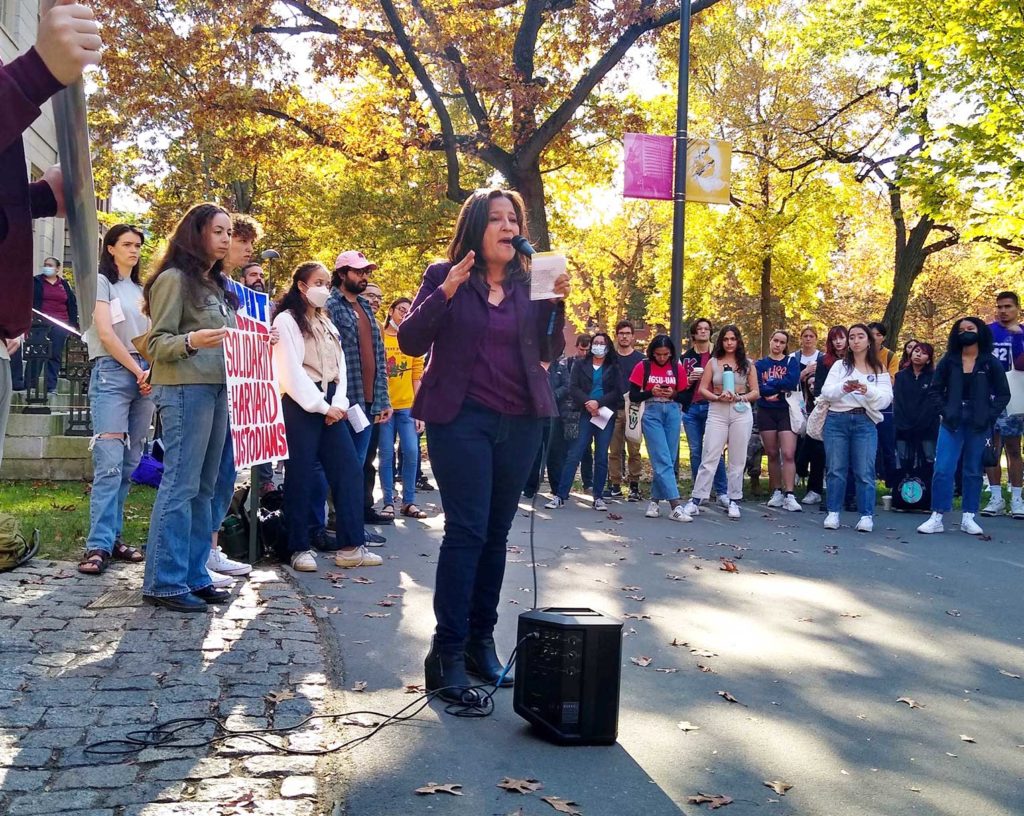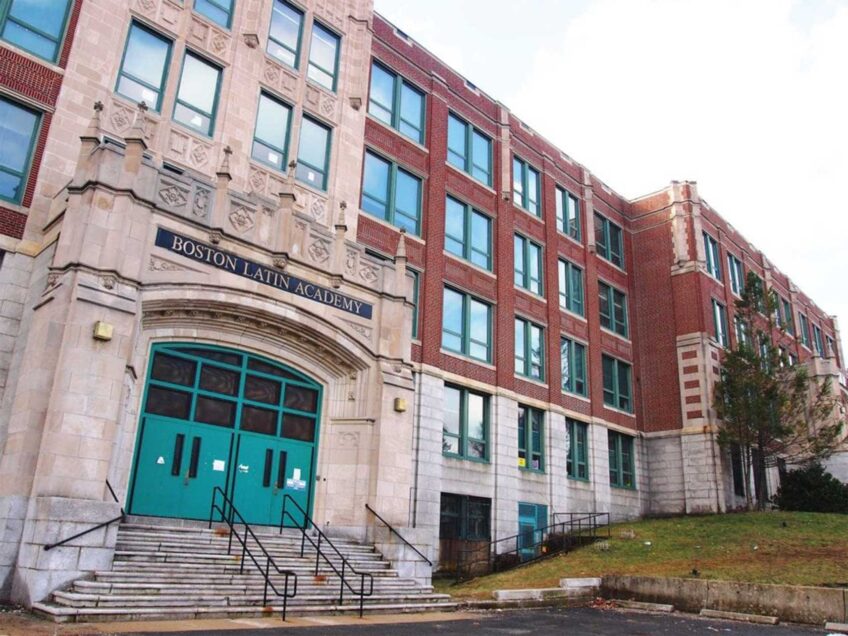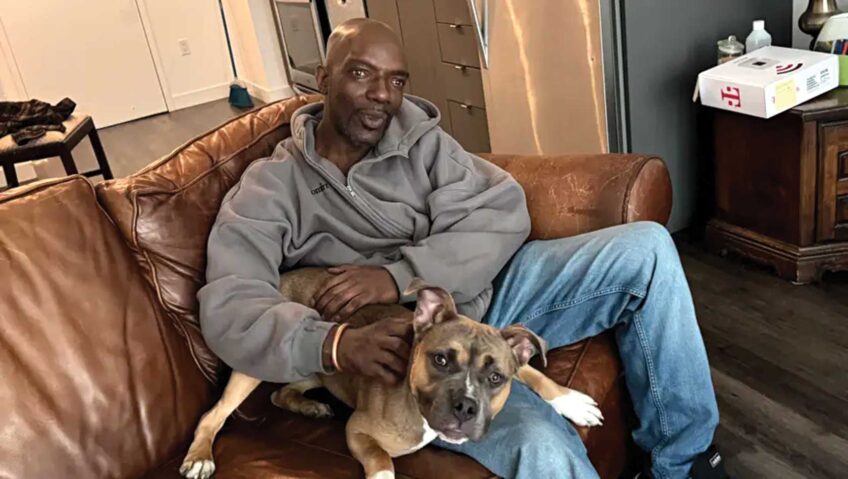Labor activism up during pandemic
Strikes increase in U.S. as workers advocate for better pay, conditions

The United States has seen 287 labor strikes since the start of 2021. Nationwide, groups from graduate students at universities to workers at major corporations have stepped off the job and onto the picket lines to speak out for requests like better working conditions.
Massachusetts has seen seven strikes since the start of the year, according to data from Cornell University, in industries including healthcare workers, stage workers and steelworkers.
Harris Gruman, executive director of the Service Employees International Union (SEIU) Massachusetts State Council, said he thinks that the country’s shift away from the pandemic led to a change in mindset for workers.
“I think coming out of the pandemic, people realized there’s a demand for workers, and that for too long workers were not recompensed for that,” Gruman said. “Their wages and benefits have been frozen for decades, really, overall.”
For workers in Massachusetts, Gruman said, the current moment highlights how a public sentiment of wanting to support workers contrasts with high levels of income inequality. According to the U.S. Census Bureau, Massachusetts ranks 44th in the United States in income inequality.
“I think [this moment] means that people want to improve the standards here,” he said, “and throw a light on the big questions: why a place where the sentiment in terms of workers being treated fairly is as high as anywhere in the United States is also a place with the most extreme income inequality in the United States. There’s a gap between the aspirations of the state, and the people of the state, and the reality.”
For nurses at St. Vincent Hospital in Worcester, who have been on strike since March 8, the protest began as an effort to seek better pay and staffing, especially during the COVID-19 pandemic. According to a press release from the Massachusetts Nurses Association (MNA), the nurses and their employer, Tenet Health Care, agreed to staffing improvements in August, but the nurses are remaining on the picket line until they get a guarantee that they will all get their jobs back.
“The one thing that holds us out at this point is that our employer is holding firm on not giving nurses the positions that they held prior to the strike,” said Marie Ritacco, a nurse at St. Vincent and vice president of MNA. “That is something that we see as being particularly a non-starter for us.”
Closer to Boston, the Harvard Graduate Students Union (HGSU-UAW) went on a three-day strike from Oct. 27 through Oct. 29 to push a number of demands around issues like compensation rates and discrimination and harassment issues.
“We were not happy with the progress and lack of movement [in negotiations with Harvard], so we called for a strike for those three days, in which we … withheld our labor and interrupted classes with our picket line,” said Brandon Mancilla, a Harvard graduate student and president of HGSU-UAW. “And the issues that we’re fighting for — a living wage, improved transparency and independence for harassment and discrimination procedures, a union shop — all those things are still things we’re negotiating over.”
The end of the strike didn’t mark the end of the graduate students’ push. Mancilla said they saw some response from the university under the pressure of the strike threat, but they’re still negotiating and have set another strike deadline for Nov. 16.
A broad movement
The fact that both strikes are taking place in a broader moment of labor action wasn’t lost on either union.
Mancilla said his union feels connected to all the others that are taking action. During their three-day strike, he said, Harvard student workers held a moment of silence for a John Deere worker on strike in Illinois who was hit by a car while walking to the picket line.
“There’s a lot of political labor education happening right now, people coming to consciousness of their connections with all these different unions and workers who have similar complaints and similar grievances about the working conditions, the pay they’re having while corporations are making a killing — especially after this pandemic and everything that has gone down over the last two years,” Mancilla said.
Massachusetts Congresswoman Ayanna Pressley, who spoke out on Twitter when Harvard asked its graduate student employees to report if they had gone on strike to adjust their pay, said in a statement to the Banner that she thinks it’s important to support workers at Harvard and in strikes across the country.
“Every worker who calls America home deserves to be treated fairly and equitably — and Harvard’s grad students are no exception,” Pressley said. “Organized power is realized power, and I’m proud to stand in solidarity with workers at Harvard and across the country demanding better pay, better working conditions, and basic dignity and respect.”
Ritacco said she hopes the nurses’ strike at St. Vincent is leading the way for others in the health care industry and across the labor movement.
She referred to the nurses at Mercy Hospital in Buffalo, New York, who began a strike of their own at the start of October and voted to ratify new contracts, bringing their strike to a close on Nov. 8. Ritacco said she thinks the length of the strike at St. Vincent — now past the eight-month mark — might have helped keep the strike at Mercy Hospital short.
That connectedness extends beyond just the health care industry, she said.
“People have realized what their worth is,” Ritacco said, “and they’ve realized that they have not been treated fairly in the workplace. Their health has not been put first by their employer; the employer is putting profits over everything else. Employees are tired of it, and they see an opportunity, and they’re seizing the opportunity, saying, ‘Enough is enough. We’re not against corporations making a profit. We are just not going to accept, any longer, poor working conditions that actually put our lives in peril.’”
Gruman said that the strikes in Massachusetts offer an opportunity to reassess how workers are treated.
“This is a time to really ask, ‘Can we do better here?’” Gruman said. “Can we practice what we preach and make the standard of living here really a livable standard of living, rather than a constantly degrading one either because we raise wages and the housing goes up, or [because] we don’t raise wages and the cost of living goes up anyway. In any case, we’ve fallen way behind and we’re playing catch-up.”
He also said that the increased calls for racial justice that began after the death of George Floyd in 2020 have opened the moment to talking about equity within the labor movement.
“We have to bring up the floor more dramatically,” Gruman said. “The floor has become really unacceptable.”






